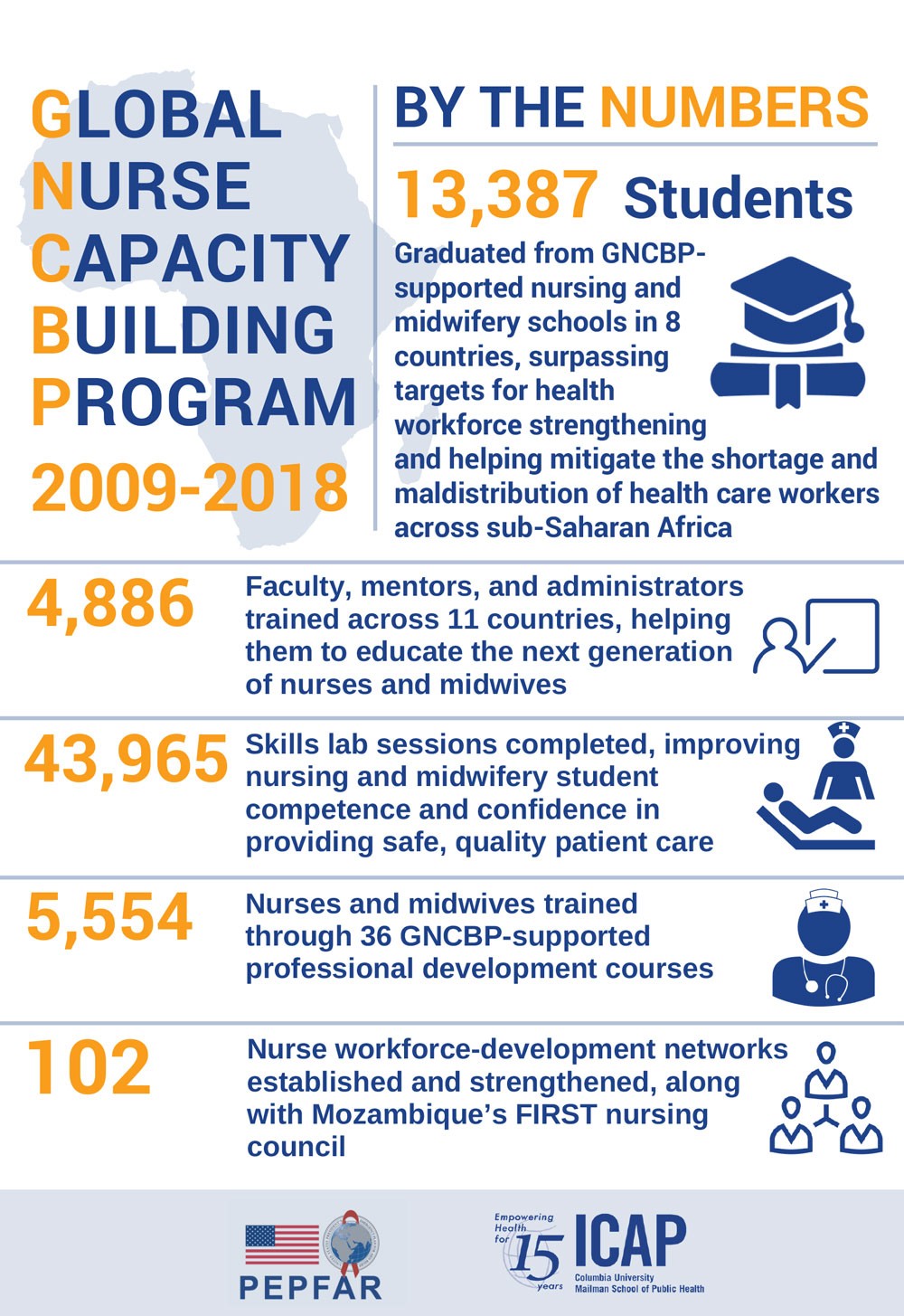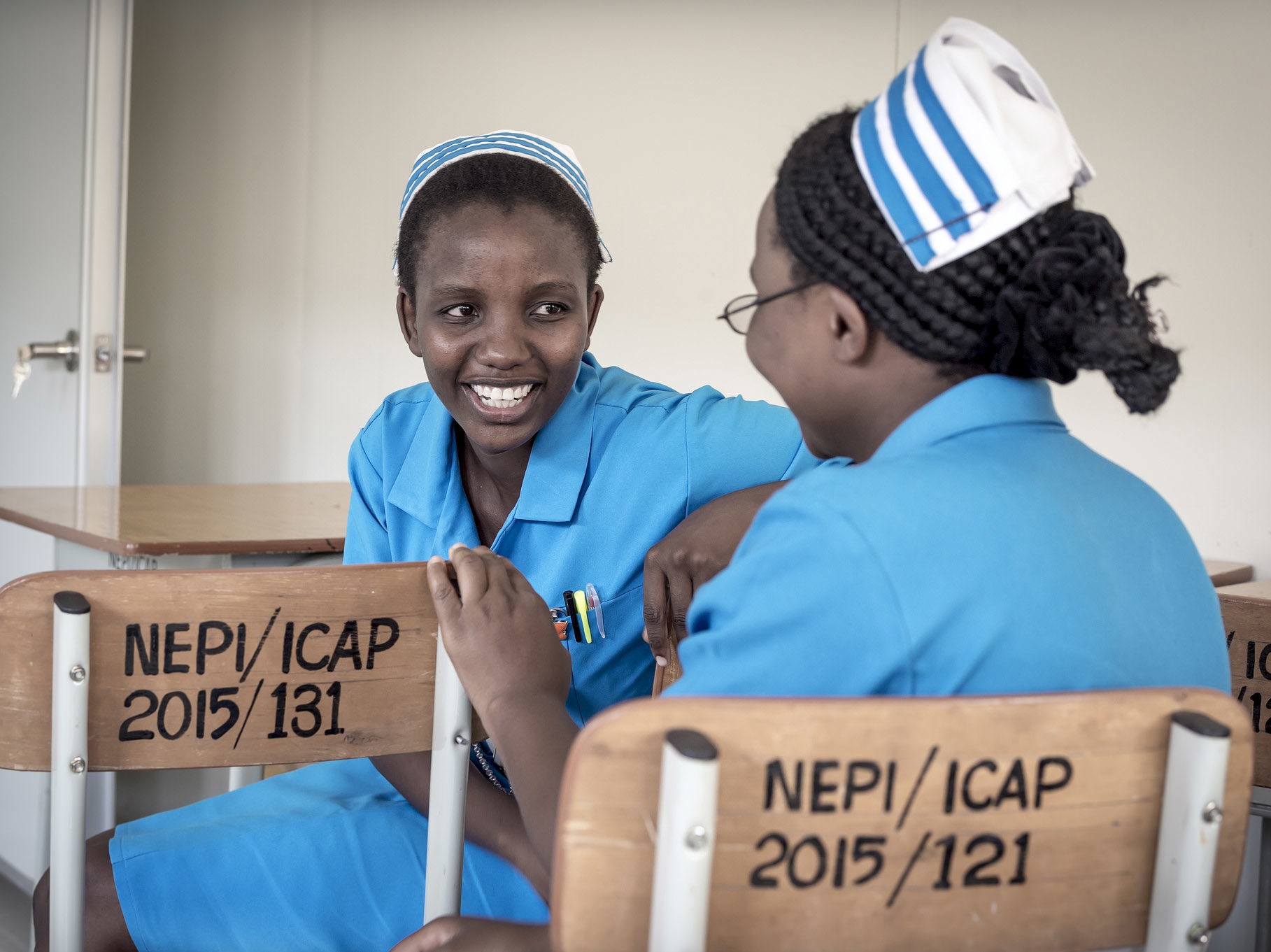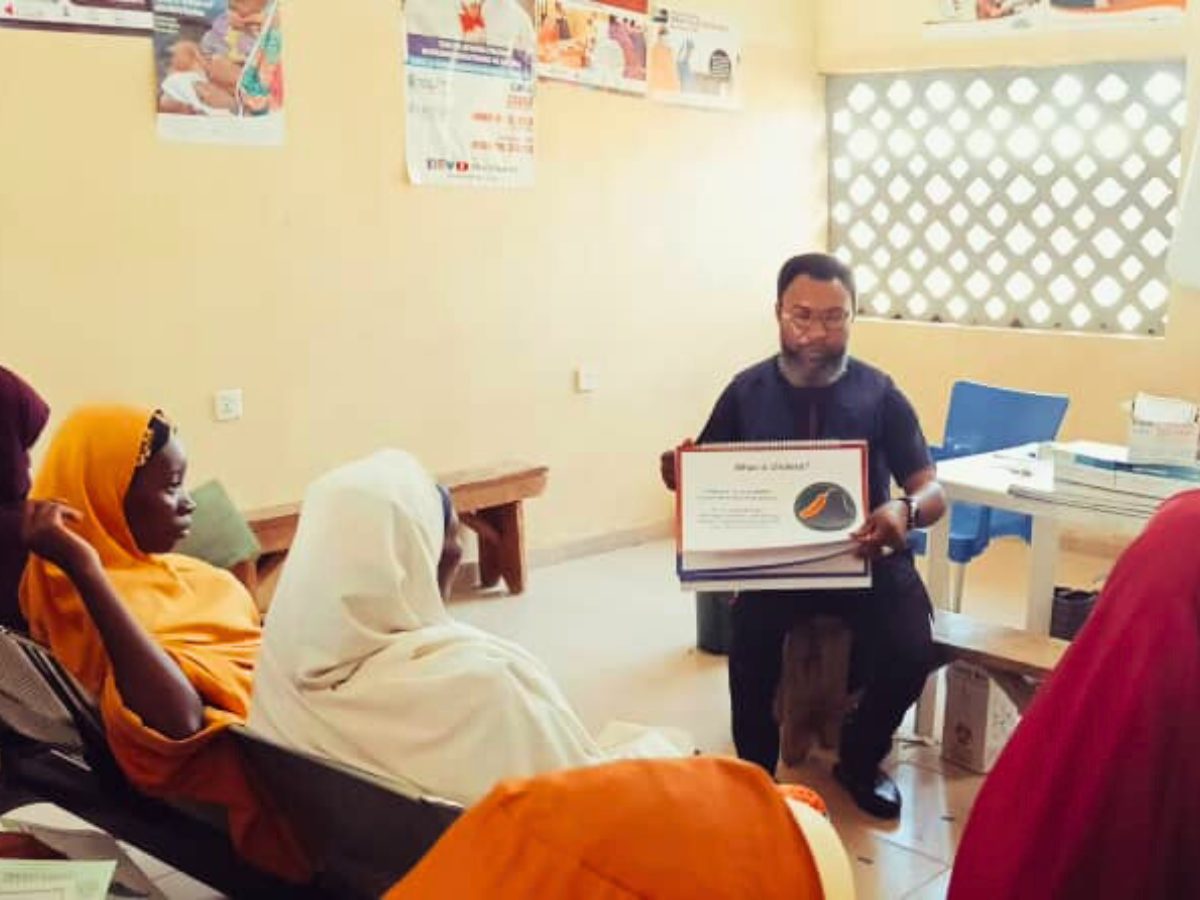More than 13,000 new nurses and midwives graduated into the workforce across sub-Saharan Africa through ICAP’s Global Nurse Capacity Building Program (GNCBP), which celebrated eight years of programmatic success at a capstone event in Washington, D.C., on Monday, April 30, 2018.
These new health care professionals were trained by some of the nearly 5,000 nursing school faculty, mentors, and administrators across 11 countries who were supported by GNCBP to redevelop school curricula in line with national licensing requirements, updated technology, and current best practices in care.
At the capstone event, Judy Khanyola, MSc, ICAP’s Regional Nursing Advisor for Africa, remarked, “I always say the first person you’ll see in Africa is a nurse. Even if you need a doctor, you need a nurse first. So let’s empower nurses as the frontline cadre of health workers and scale up their impact.”
ICAP implemented GNCBP from 2009–2018 under principal investigator Susan Michaels-Strasser, PhD, MPH, RN, FAAN, as part of its work to advance the HIV response toward epidemic control and improve population health in sub-Saharan Africa. Through two complementary sub-projects, the Nursing Education Partnership Initiative (NEPI) for students and the General Nursing (GN) project for continuing professional development, GNCBP significantly increased both the quantity and quality of the nursing and midwifery workforce. The program was supported by the U.S. President’s Emergency Plan for AIDSRelief (PEPFAR) through the U.S. Department of Health and Human Services, Health Resources and Services Administration (HRSA).
“Nurses are central to HIV treatment scale-up and epidemic control,” Michaels-Strasser said. “GNCBP has helped to ensure many more competent nurses are in practice where they are most needed.”
In addition to the new graduates, more than 5,500 working nurses and midwives improved their skills through GNCBP-supported professional development courses, and 102 nurse workforce-development networks—including Mozambique’s first ever nursing council—grew in strength and membership. Elevating the status of nurses and nursing within health systems has long been a challenge, but with increasing professionalization and support for continuing professional development, nursing’s patient-centered approach is gaining a place in policy- and decision-making at the highest levels.
“We need to ensure that nurses have their rightful place in global health architecture and governance,” said Wafaa El-Sadr, MD, MPH, MPA, ICAP’s founder and global director.

During the April celebration of GNCBP’s achievements, representatives from ICAP, HRSA, and PEPFAR joined distinguished guests from Malawi, Mozambique, Lesotho, Kenya, and key international organizations for a day of learning and discussion on the theme of Strengthening the Quality and Quantity of Nursing Care. Presentations on transforming the nursing cadre led into facilitated discussions about nursing on the front lines of HIVcare and the future of nursing in the HIV response, with time for sharing key technical and country-specific learnings.
In his concluding remarks, Myat Htoo Razak, MBBS, MPH, PhD, Director of the Division of Global Programs in the Office of Training and Capacity Development at HRSA, highlighted the importance of enabling nurses to reach their full professional potential. “Epidemic control is in our hands if we can work together,” Razak said. “Whether in Africa, Asia, Latin America, Europe, and here in the United States and North America as well, we have to work together as a team and as professionals. We cannot just train people; we have to make sure that the trained ones have the chance to really contribute to what they dream of doing, and we will need to continue to work with them to keep strengthening their capacity.”
Visit ICAP’s website to learn more about the GNCBP and read about celebration events held in South Africa and Ethiopia.







